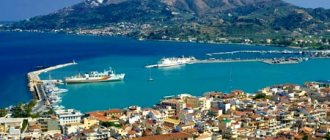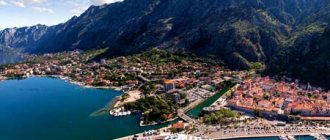Having visited cloudless Italy once, you want to come back here again and again. Many Russians are attracted to this country not only as a recreation area, but as a place of future residence. It is important to understand that tourism and work in Italy are two different things. To get a job with a good salary and suitable conditions, you need to make an effort. However, if this succeeds, a decent life in a European country is guaranteed.
Where to look for work in Italy?
Official employment is possible in Italy for specialists of various professions and qualifications. Those who want to get a job abroad in their specialty obtained at a domestic university will have to confirm both their diploma and their skills. Most often, you need to pass additional exams, and, of course, without excellent command of Italian in this case, you can’t get anywhere.
Finding a job in Italy is quite promising for those who have lower demands. The paradox is that despite the significant amount of labor resources in Italy - the number of working-age citizens reaches 23.35 million people, there is also a very high unemployment rate - 9.7% as of October 2021. Many Italians simply do not want to do low-skilled work (cleaning, examining patients, hard physical labor, etc.) for the money that is offered for it. That is why there will always be blue-collar jobs for “our people,” because visiting migrants are willing to work for half the amount.
For example, finding a job in Italy for women will not be difficult if you agree:
- care for the elderly;
- sit with children;
- clean houses;
- wash dishes or
- be an animator.
During the harvest season, the question “How can Russians find work in Italy?” does not arise at all. Any and more workers are required. Also, at the height of the arrival of holidaymakers, Russian-speaking migrants are willingly hired to work in bars and nightclubs, and the opportunity opens up to work as a guide for “their” tourists.
Finding a job on your own
It should be noted right away that you need to look for a job in advance. To come to Italy to work, you will need an invitation from an employer. If your goal is to work without intermediaries in Italy, you can start looking for a vacancy without the participation of agencies. There are many websites or print publications with advertisements for this purpose. If you negotiate over the Internet or telephone, you can easily get a job from an employer in Italy even remotely. Another way is to travel as a tourist or during a work trip to Italy, personally search for an employer and discuss with him the details of future work.
However, remote search remains the most popular option for finding a job. An online job board for Russians in Italy is perfect for this.
Internet to help
Depending on whether you speak Italian or not, you can look for work on English-, Russian- or Italian-language Internet resources. The official Italian job board is located at: www.cambiolavoro.com. Here you can also see examples of resumes, compose and post your own.
Other popular sites for finding work in Italy:
- Infojobs.it;
- Cliccalavoro.it;
- indeed.com;
- corriere.it;
- lavorostagionale.net – seasonal work;
- pambiancojobs.com – advertisements in the fashion industry;
- lavoroturismo.it – tourism.
Italian publications with advertisements
While in Italy, one of the ways to find a job is to often look through local newspapers or magazines with advertisements. You can also place your offer there. Leading Italian publications:
- “Corriere della sera”, Corriere della sera (www.corriere.it);
- "Repubblica", la Repubblica (www.repubblica.it);
- “24 Hours of Sun”, il Sole 24 Ore (www.ilsole24ore.com);
- "The Messenger", il Messaggero (www.ilmessagero.it).
Don’t forget to look at the signs on the streets; often in this way you can quickly find a very decent job.
Recruitment agencies come to the rescue
Recruitment agencies that provide assistance in finding work in Italy are only available to foreign citizens with a residence permit. An exhaustive list of local companies can be found in the newspaper “il Sole 24 Ore”, which can be easily purchased in any corner of the country.
The most popular recruitment agencies
Review of recruitment agencies:
- One of the promising recruiting agencies of the new generation is EasyHunters (easyhunters.com).
- The official employment center is ANPAL.
- Private companies for the selection of temporary work: Adecco, ALI, Eurointerim, Kelly, Sinterin, Vedior, Manpower, as well as on the agenziainterinale.it portal.
- Italian office of the Pan-European Employment Service (EURES) – citizens.eu.int.
- Information about local youth centers with job boards – informagiovani.it.
How to find a job in Italy without intermediaries?
Having decided to look for work in Italy, it is important to realistically assess the demand for your specialty, language proficiency and desired salary level. Based on this, you can look for vacancies in the strict North, with higher requirements for documents, or in the more loyal, and often hiring illegal immigrants, South of Italy. At the same time, you need to understand that wages are higher in the North of the Apennines.
Having decided on the region of Italy, you can start looking for work. Ideally, these should be recommendations from friends or relatives already in the Apennines, because employment centers rarely help even native Italians, and in recruitment agencies you can wait for a vacancy for months.
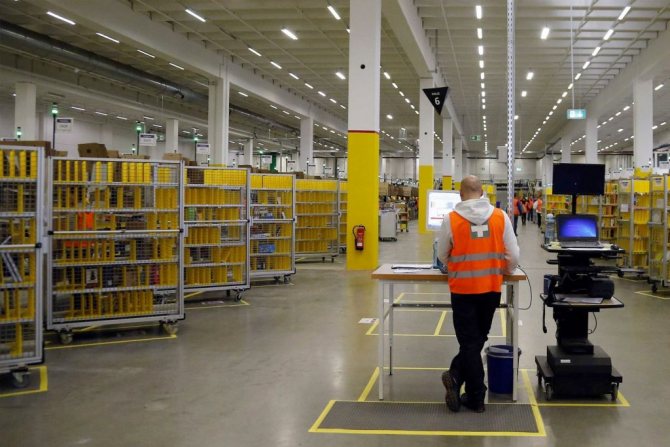
Work in Italy in a warehouse
Main Italian job sites
If you don’t have any acquaintances in Italy, you can only look for vacancies on the Internet. There are few dedicated sites for finding work in Italy. But free classifieds sites are popular. You can find a vacancy there or leave your application if you already have a residence permit. You can also open the websites of large Italian factories and factories and leave applications there.
You can search for a suitable vacancy on the following websites:
- bakeca.it;
- subito.it;
- lavoro.corriere.it;
- jobijoba.it;
- infojobs.it;
- it.jobrapido.com.
If there is no suitable job in your specialty, you can try taking training courses. Look for announcements about them on the website informagiovaniroma.it. Some courses are free not only for Italian citizens, but also for residence permit holders.
Where to start the employment process
If you don’t know how to get a job in Italy, you need:
- Find a suitable vacancy, negotiate directly with the employer and sign a contract.
- Before you leave and start working in Italy from Russia, obtain admission and permission (nulla osta) from your employer.
- Collect documents and submit them for a visa.
Having definitely decided to go to work in Italy, we must not forget that after arrival the migrant is given only 8 days to come to the police station closest to the place of further residence. Based on the application of a foreign citizen, he will be issued a residence permit for the period specified in the work agreement (but not more than a year). Upon the arrival of a new employee, the employer informs the Ministry of Labor and Social Policy within 5 days and receives a work book for him.
What documents to prepare for a work visa
To obtain a visa, the standard package of documents is:
- application form filled out by the applicant;
- 2 color photos;
- foreign and civil passports plus their copies;
- receipt for paid consular fee 116 euros;
- standard consent to allow the processing of personal data;
- attached contract with the Italian employer and permission received from him.

Obtaining a work permit
It is the future employer who issues the work permit in Italy. To do this, an application is submitted to the Prefecture, which is then transferred to the Police Service. Within 20 days after this, a permit to hire a foreign worker will be issued along with a reserved permit. It is important that the migrant’s working conditions are agreed upon immediately and are no worse than those of local employees.
The admission and permit are then sent to the prospective employee.
Translation into Italian and examination of documents
Documents must be submitted in advance, since they will be processed at the embassy for about a month.
An important point is that all submitted documents must be translated into Italian or English. The accuracy of the translation is certified by a notary or the consular department of the Italian Embassy in Russia. It is necessary to submit the original document from which the translation was made. If the work was performed by an accredited translator, confirmation takes only 1 business day.
Briefly about the work visa
The permit sent by the employer is valid for six months. During this time, you need to have time to obtain a work visa (type D). Its validity period is from 90 days. To receive it, submit documents to the Italian consulate in the Russian Federation.
If the decision is positive, a sticker will be pasted into the applicant’s passport, and notifications will be sent to the Italian authorities (Ministry of Internal Affairs, Ministry of Labor and others). For highly qualified specialists in demand in Italy, it is possible to obtain an EU Blue Card, which greatly expands the applicant’s capabilities. It is also worth reading how to get a Schengen work visa.
Temporary residence permit for work in Italy
The D-visa is the basis for the foreigner to subsequently obtain a residence permit in Italy. There are 3 types of residence permit - residence permit without the right to work in Italy, with the right to work and with the right to work and study. With the last two varieties, everything is clear - they are issued to those who plan to live and work in Italy, or, in addition, study here. A residence permit without the right to work is available to wealthy individuals who own a house or apartment in Italy, or simply with sufficient funds in a bank account (over 50,000 euros). Also, a similar type of residence permit is given in case of family reunification with an Italian resident.
Is it possible to emigrate through employment?
Employment is a real chance to emigrate to the country of Dolce Vita. The process, of course, must be official, that is, it must take place with the help of an Italian employer who gives a work permit. After this, the foreign employee submits an application for a residence permit, on the basis of which, after 5 years, it becomes possible to obtain a permanent residence permit or permanent residence permit. Another five-year period with permanent residence and citizenship becomes available. Read more about how emigration to Italy works.
What do you need to get a job in Italy?
According to Italian law, the basis for employment is a national visa D with the right to work or a corresponding residence permit. There are also illegal immigrants in Italy, but the government is actively fighting them.
For non-residents
The Italian embassy will consider documents for a work visa only if the employer sends a conclusion about the absence of restrictions. It is valid for six months and is not easy to obtain.
Every year in Italy, quotas for foreign workers are determined by decree. The employer must submit an application that guarantees the non-EU employee housing, a salary not lower than the minimum subsistence level, payment of taxes and the return of the foreigner to his homeland. The application is considered for up to 40 days, after which a conclusion is issued about the absence of obstacles or a refusal to employ the foreigner.
Summoning a foreigner from his country of residence is a rather lengthy process. It is usually decided by Italians who are seriously interested in a foreign worker. To do this, you must either have good recommendations from Italian residents or pass an interview.
How to get a visa to travel for an interview and get to know the country in our article Obtaining a visa to Italy.
After arriving in Italy, a foreigner must submit documents to obtain a residence permit. The exception is seasonal workers. Their work visa cannot be extended, and an application for a residence permit can only be submitted after 3 years of work as a seasonal worker.
For Italian residence permit holders
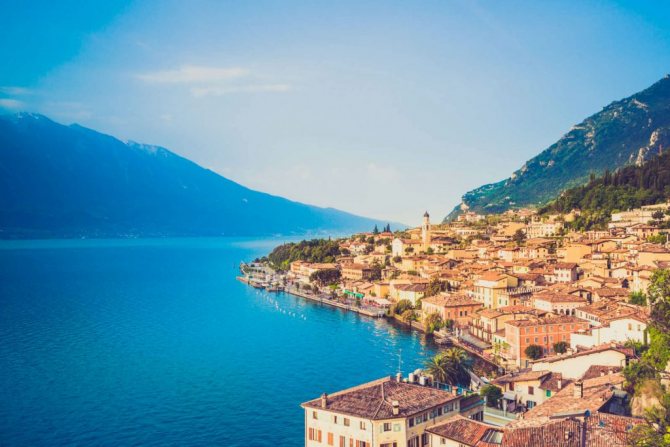
Since paperwork for calling a foreigner takes up to six months, Italians prefer to hire workers who are already in the country on the basis of a residence permit. They can start working immediately after signing the contract. When hiring, attention is paid to the type of residence permit, which is issued for self-employed (lavoro autonomo) or contract workers (lavoro subordinato). Residence permits for the self-employed are issued to those opening a business in Italy and to professionals (the list of professions in short supply is updated annually).
Having worked in Italy legally for 5 years, you can apply for PERMESSO PER LUNGO SOGGIORNANTI (permanent residence), and after another 5 years it will be possible to apply for Italian citizenship.
Pay for migrants in Italy
Knowing local salaries will help you get a better idea of what earnings are like in Italy.
Minimum wage in Italy

The amounts vary greatly from region to region and depending on the field of activity. In the south, it is easier for a foreigner to get a job even without knowing the language; in the north, on the contrary, employers very carefully consider the applicant’s documents and take fluency in Italian seriously. This is fully reflected in the salary - in the second case the level of payment is much higher (by about 16%). On average, the minimum wage will be at least 700 euros, the same applies to minimum pensions and unemployment benefits. For example, the salary in agriculture before taxes for an unqualified worker is about 15–20 thousand euros/year or 1200–1600 euros/month. By the way, the Constitution stipulates in this regard that the employee must receive enough to cover the cost of living, which in 2021 is 935 euros/month.
National averages
As for the national average salary, in 2021 this figure was about 2,400 euros/month. Depending on the region - north or south - the indicator may be higher or lower. Salary also varies depending on gender - men receive on average 10–15 percent more than women. The following jobs for men in Italy in 2021 are mainly available to migrants: seasonal work, laborers, house helpers, gardeners, drivers. This list is for those without a diploma.
With an education diploma recognized in Italy, the range of professions expands - these include vacancies for doctors, IT specialists, and design engineers. Specialists in the field of management, education, and mechanical engineering are also popular. Find out how the average salary in Italy varies by industry.
Real salary after taxes
A certain income tax is withheld from each employee’s salary, and the higher the earnings, the greater its value, which seems quite logical. Those who earn less than 1,250 euros per month pay 23% personal income tax. Accordingly, with a salary of 2335 euros/month. tax is 27%, 4583 euros/month. – 38% and so on. For example, if the salary accrued for a month of work is 2525 euros, then the person will receive 1825 euros.
Employment in Italy for citizens of CIS countries
Due to very low wages and unemployment in their homeland, many citizens of the CIS countries choose employment in Italy as a way to earn a living.
What do Ukrainians do?
Citizens of Ukraine who came to Italy to work most often work as nurses, cooks, laborers, cleaners, gardeners or builders. Naturally, you shouldn’t count on high pay for such work by Italian standards. The work is very often carried out illegally, which, although illegal, suits both parties.
An employee’s monthly salary is about 500–600 euros (12–15 thousand UAH), which is not bad by Ukrainian standards, especially if you live with your employer for free. Read reviews from those who left about what work is like for Ukrainians in Italy.
Jobs for Belarusians
Since the Republic of Belarus is not a member of the EU, the bulk of Belarusian migrants are applicants for those types of jobs that are not in demand by Italians or citizens of other European countries. This is again seasonal work, different types of household work, farming and agronomy. Knowing the language will help you earn more. Find out all the details about what other work there is for Belarusians in Italy.
Offers for citizens of other countries
If we take citizens of Armenia, then working in Italy for Armenians is a salvation, because for the services of a housekeeper or badante you can get about 700 euros/month, and if you learn Italian, then up to a thousand euros. At the same time, in Armenia the payment for more difficult work will be 2–3 times less.
Women from Moldova who came to work in Italy are considered the most efficient and kind-hearted, which is why they are eagerly hired by Italian families. Caregiving work for the elderly or children can be seasonal or permanent. There are often situations when work in Italy is illegal for Moldovans with a biometric passport. You can enter the country without an employment contract, and the employer does not need to make efforts to obtain permits and admissions.
Specifics of employment in Milan
The population of Milan in 2021 is about 1.4 million people , that is, the capital of the Lombardy region is the second largest city in Italy after Rome. According to various estimates, up to 200 thousand foreigners live here. The most numerous ethnic groups are represented by the Chinese and Filipinos. Milan has a lot of immigrants from Eastern Europe, Africa and Latin America. Russian-speaking citizens are quite common; by the way, many of them have an Italian passport.
The climate in the city is not as comfortable as in the south. Winters are wet and cold, and summers are mostly hot. Compared to some developed Western European cities, the salary-price ratio in Milan is not very favorable . There are problems with infrastructure and the environment, but overall the city is safe and suitable for a quiet life. Medical care is at the highest level, and diplomas from Milan and Italian universities in general are valued all over the world. All this must be taken into account when planning professional activities in Milan.
Italy is having great difficulty coping with the consequences of the global financial crisis of 2008–2009. Of course, this has a negative impact on the labor market and complicates the process of finding a job in Milan. Only over the past few years has the country's economic growth begun to gradually recover. However, compared to the agricultural south, the industrial north of Italy is in a much more advantageous position. For example, if the national average unemployment is up to 10%, then in 2021 in Milan this figure does not exceed 3–4% .
To be fair, it should be noted that among young people unemployment in Italy reaches 30% . Many young Italian professionals have left Lombardy and are working in Germany, Great Britain, the USA and other developed countries. To some extent, this opens up access to vacancies in Milan for foreigners, including Russians and Ukrainians. Italy has a large informal economy and jobs are often not publicly available. Many vacancies are passed on to relatives and friends, since family businesses are very developed in this country.
In Italy, special annual quotas are established for hiring applicants from third countries , including Russians and Ukrainians. In addition, local laws prohibit the hiring of foreign workers if local residents or citizens of the European Union are applying for the job. Of course, all this also makes it difficult to find a job in Milan. For official employment, the following conditions must be met:
- Find an employer in advance and conclude an employment contract
- Get a work permit
- Open an Italian work visa
- Apply for a residence permit in Italy
Only compliance with the above requirements will allow you to legally work in Milan and live in Italy. A seasonal work permit is issued for 6 months with the right to extend for another 90 days. Regular long-term employment provides for a document validity period of 1–2 years. If you lose your job, your residence permit will not be revoked. A foreigner has the right to register as unemployed and try to find work in Milan while the previous permit is valid.
South or North, city or suburb: where is it better for a migrant to work?
Despite the fact that the southern part of Italy is considered poorer than the northern part, the opportunity for visitors to get a job here is very high. And without large losses in wages. So, there is always work for Russians in Palermo: as harvesters (salary 1000 euros), nurses (700–800), badantes (900), auto mechanics (800 and above), guides (800), workers at the production plant coffee (1000 and above), hotel administrators (800), house workers, including for married couples (600–700).
Work in Florence is no more varied for Russians. All the same house helpers, caregivers or service station workers, with a salary in the region of 700–800 euros.
In the south of the country, coastal regions are now being actively developed - buying real estate here is an excellent investment, especially for non-residents. It is worth paying attention to this for those who feel confident in various construction works. Thus, work in Scalea in Italy for visitors is not only in the household, but also in the fields of construction and tourism.
Pros and cons of working in Naples
Basically, vacancies in Naples for Russians are limited to working in Italian families. It should be taken into account that in the south of Italy middle-income families resort to hiring foreigners, trying their best to save on staff. If, for example, it costs 1,000 euros to place an elderly family member in a special institution, then a Russian will do this work for 500–700 euros. As a result, work in Naples for Russians lasts around the clock; sometimes employers can give 1–2 days off a week. The advantage of all this is that there is no need to pay for rent, since the job requires permanent accommodation and additional food. As a result, almost all the money earned can be saved or sent home.
Badante, nurses for the elderly, the disabled, and children with mental disabilities - the most common job for women in Naples. It is more difficult for men to find employment; most often they are assistants in vegetable harvesting and construction work. Naturally, if you have the finances, you can open your own business here, for example, a grocery store, translation company, hairdresser or goods transfer point.
What kind of work is there for visitors in Venice?
In the city of canals and gondolas, it is very difficult for a newcomer to find a job. The following work remains available in Venice for Russians: housekeepers with accommodation in Russian-speaking families or service personnel in hotels and car washes.
Also, native Russian speakers, preferably with knowledge of English, can be useful as a store salesperson, manager or sales assistant. Similar vacancies in Venice for Russians can be searched on Italian job boards it.indeed.com, jobbydoo.it, it.jooble.org and others.
Milan - a city of opportunity for migrants
Alternatively, work in Italy with knowledge of Russian can be found in companies opened in Italy by citizens of the Russian Federation, or in companies and stores serving Russian-speaking tourists. Such vacancies in Milan are available to Russians on a par with work as domestic servants or general workers.
If linguistics isn't your thing, there are always construction jobs in Milan for men. Ancillary workers will be able to earn here (or in a suburb near Milan) from 1,500 euros/month.
For those who have experience working in a beauty salon, there is a job as a manicurist in Italy in the city of Milan. Of course, knowledge of Italian in this case will be a definite plus, however, you can try to look for offers from Russian-speaking employers.
How our people work in the capital
As in other Italian cities, work in Rome will be more highly paid for professional specialists who have confirmed a diploma, or for those who speak Italian. Without knowledge of the language and a diploma, for Russian visitors in the capital only offers are opened in the field of domestic staff for cleaning and caring for the elderly or children.
In general, a job in Italy with knowledge of the Italian language is paid higher, even if it is a home worker position. In addition, there are prospects for employment not only in “dirty” jobs, but also in obtaining the position of manager, secretary or assistant in an Italian company.
With the onset of the warm season, seasonal vacancies open up in Rome for Russians. These are harvesters in the vicinity of the capital, as well as workers in the tourism sector, hotel business, guides, dancers and other staff in bars.
Available jobs in Italy for foreigners
There are different categories of workers who work from home in Italy: in order to be hired for the highest categories, a confirmed diploma is required. As a rule, personnel without education are required to: clean the house, do laundry, ironing, help in the kitchen, and sometimes look after children or elderly family members. These are the vacancies for Russians in Italy in 2021 that were the most accessible and popular.
In general, there remains a demand for IT specialists, engineers, tourism workers and unskilled labor. These are the most popular professions in Italy for Russians today.
A Russian teacher in Italy is quite possible
For those with education in the field of teaching Russian as a foreign language, there is a good job for Russian speakers in Italy: as a teacher in courses or in Russian schools located in Rome, Milan, Verona and other large cities. Alternatively, teaching Russian in Italy is possible privately. This part-time job as a tutor brings in from 15 euros/hour.
For women from Russia who do not speak the local language, working as a nanny with a child in Italy is suitable. This type of activity can bring up to 1500 euros/month. or 9 euros/hour depending on the experience of the applicant.
What job specialties are open to migrant workers?
Italian fashion is rightfully considered an emblem of style and grace. There are many studios in large cities, so for Russian women with experience in sewing and repairing clothes, working as a seamstress in Italy is a real chance to find employment in their specialty in a good company. In this case, there is no need to even hesitate whether to go to Italy to work. Depending on the skill and knowledge of the applicant for a vacancy, you can earn from 700 euros as a beginner to 5,000 and above for a professional cutter or prototype designer.
For specialists in the IT field, working as a programmer in Italy is quite possible. Salaries start from 27–28 thousand euros per year (about 2250 per month). The only thing is that knowledge of the local language is a must, even if you work in the Italian branch of a large English-speaking company, such as Microsoft or Google. Without the Italian language, life outside the office simply will not exist. You can get a job either by invitation or by graduating from an Italian university or by opening your own business.
Holders of an international driving license can work as a driver in Italy. In this direction, the latest vacancies in Italy: family driver, international cargo transportation specialist, taxi driver. Over time, a foreign driver will still have to pass an Italian license.
Russian social workers
In the social sphere, “our” compatriots, perhaps, find themselves most often in Italy. For Russians, social work in Italy involves looking after the elderly or caring for the sick. This type of activity can be paid daily or hourly.
What does working as a badante in Italy entail:
- supervision of the ward,
- hygiene procedures,
- cleaning the premises,
- control of medication intake,
- walks and
- prevention of the development of bedsores.
Otherwise, it can be agreed directly with the employer.
Maintenance personnel - common types of work
In the service sector, today the job of hostess for girls in Italy is quite popular among young people. The work does not involve intimacy; the duties of a hostess (in Italy she is also called a “night”) include communicating with visitors to the establishment who order drinks. Based on the number of drinks ordered for the girl, calculations and payments are made every week or 2 weeks. The minimum rate is about 50 euros per shift.
It is also possible to work in Italy as a massage therapist. This usually requires a diploma and, of course, sufficient work experience. Another option is to work as a chef in Italy. Applicants can try themselves in private kitchens and restaurants. The work may be seasonal or permanent. For beginners, a position as a kitchen assistant with a small salary is suitable, but for experienced chefs the path to expensive establishments in the North of the country will be open.
Is it possible to work in the arts?
Offers, such as work as a singer in Italy, can usually be found from large Italian hotels who want to find decent musical accompaniment. You can also try your luck at auditions for various musical theaters. Please note that singers are often required for seasonal or temporary work.
What about leadership positions for Russians?
House manager or modern house manager is one of the positions common in Italian families. It assumes:
- leadership of the rest of the house members. personnel,
- accounting,
- spending and purchasing reports.
The requirements for candidates are quite high - this includes knowledge of languages (English, Italian - at least), diligence, and multitasking. There are house manager vacancies in Italy from Russian-speaking families - this option will be the best for migrants from Russia. Salary is around 2500 euros monthly. Such work for a married couple in Italy is a good chance to save money for life in their homeland or to think about further obtaining permanent residence in Italy.
Possibility of employment without knowledge of the language
A visitor cannot claim that vacancies without knowledge of the language in Milan for Russians in 2021 will be highly paid. As a rule, this is low-skilled work. For example, job vacancies in Italy for men in 2021 without language skills include:
- construction workers,
- production assistants,
- farm helpers,
- fruit and vegetable pickers
- cleaners,
- wipers.
Nanny, nurse, housekeeper - this is the job in Italy for women without knowledge of the language in 2021.
Temporary earnings: seasonal activities
The work of picking oranges in Italy for Russians in 2021 does not require special language knowledge. For visitors, it can be physically difficult to withstand such activities, but those who stay get used to the stress after a while.
Such seasonal summer work on farms for students in Italy can be a good part-time job financially. Often, harvest work in vineyards in Italy is offered to married couples and with accommodation, which allows the whole family to earn good money over the summer.
Living at the employer's expense is beneficial
For those who go abroad to earn money, rent and food are the main expense items that can negate all the benefits from work. Therefore, working as a live-in nurse in Italy is a real way out for Russians. Food and housing are provided by the employer, which means that most of the salary can be saved. Of course, there are also disadvantages of living together with an employer, because the employee is under supervision 24 hours a day and cannot relax as if he were at home. This is a matter of the candidate’s personal preferences. In any case, working as a nurse in Italy without intermediaries is one of the most common offers on the labor market for foreigners and finding a vacancy will not be difficult.
Work in Italy for foreign doctors
Indigenous people do not strive to work in the medical field, since the work is hard and involves caring for seriously ill patients and night shifts. Therefore, there are many foreigners among the doctors and medical staff. Thus, having arrived for seasonal work, many female doctors in Italy remain to work permanently as nurses, having concluded contracts with the employer. They are provided with housing and a salary of 1000 euros. True, you need to know spoken Italian and English, be able to read and write in Italian. Working as a doctor or nurse is an excellent opportunity to bring your family to the country in the future.
Legal or illegal: how are illegal immigrants punished in Italy?
Getting a job legally in the Italian Republic is a headache for a foreign citizen, and even for the employer himself. Not only must the migrant find a job remotely and negotiate with the employer, but on the Italian side it must be proven that the foreigner is better suited for the position than any other local resident. When it comes to blue-collar jobs, low-skilled work, this is not easy to do. There are usually few quotas issued by the state to attract foreigners; naturally, there are not enough for everyone. Therefore, many people go to work without official permission. What disadvantages such employment has can be read in a separate material “illegal immigrants”.
Expulsion of illegal workers
According to the law, imprisonment and fines for migrants for illegal work are currently abolished. The authorities' goal when identifying illegally working foreigners is to immediately expel them from the country. In this case, the Italian employer will still pay a fine to the state. Be sure to research how deportation works.
Pros and cons of working in Italy
When thinking about moving to Italy, the advantages of working abroad usually come to mind:
- significantly more generous pay;
- the possibility of obtaining a temporary residence permit and then permanent residence;
- mild climate, clean air, nature - a nice bonus;
- the friendliness of the locals and a large number of Russians.
At the same time, it is important to immediately evaluate the disadvantages of working in Italy:
- difficulties in obtaining legal work, a small number of quotas;
- the need to confirm diplomas from CIS countries;
- lower wages than in other European countries;
- impossibility of extending a residence permit if you wish to stay in the country for a longer period.
So it turns out that because of these shortcomings, migrants often have to work illegally and in very low-skilled jobs, even for those with a higher education.
Finding seasonal work in Italy

In the summer, which marks the peak of the tourist season and the time of harvest ripening, migrants flock to Italy wanting to get temporary work and improve their financial situation through it.
Experts recommend starting your job search in your home country. This is due to the fact that an official position can only be obtained on the basis of a work visa, and it must be obtained before the planned departure. Recruitment agencies provide assistance to migrants in finding seasonal work. They find a vacancy and help prepare documents to obtain a work permit.
Temporary employment is called flussi stadzionale. The country's authorities issue visas especially for him, the validity period of which is limited to 9 months. This permit cannot be extended. At the end of his term, the migrant must leave the country.
Opening your business in Italy
If you have the opportunity, you should definitely open your own business in Italy. For an entrepreneur, this is a whole set of advantages - a stable income, real chances to bring the business to the European market, simple documentation, prospects and benefits from the state, including for family members. There are 3 options:
- Buy a ready-made, already functioning business.
- Become an equity participant in a business in Italy.
- Establish your own business.
The first two points definitely require a thorough audit, so that, as we say, you don’t “get into trouble.” In the latter case, it is possible to organize a company in one of the following forms:
- Individual entrepreneur - individual entrepreneurship - the best for beginners due to flexible taxation, simple reporting, and the ability to combine with regular employment;
- LLC is a small enterprise with an authorized capital of at least 10,000 euros, which can be divided between several founders;
- JSC are large companies with a capital of 120,000 euros.
To open your own business with incomplete knowledge of the language, it is better to contact a trusted person in Italy. The step-by-step process is simple:
- submit documents to the Chamber of Commerce and Industry of Italy;
- wait up to 60 days for the outcome of the case;
- pay 310 euros of state duty and 220 euros for entering the company into the register;
- apply for a business visa;
- arrive in Italy no later than 180 days;
- submit an application for a temporary residence permit to the Questura at your place of residence in Italy (within 8 days after arrival).
A foreign businessman must have an impeccable reputation, proven financial solvency, and qualifications in the field of open business. He must also pay taxes regularly, regardless of the profitability of the business.
To obtain a visa you will need the following documents:
- nullah osta invitation (valid for six months from the date of issue);
- certificate from the Italian Chamber of Commerce and Industry (valid for six months);
- documents on payment of taxes, copies of contracts, open bank accounts to confirm the viability of the business;
- documents confirming your place of residence;
- copy and original passport;
- receipt of payment of the consular fee;
- passport.
See also: Legal work in Israel for Ukrainians 2020
One of the significant advantages of starting a business in Italy is the absence of special taxes for foreigners. Your company is not required to provide jobs or have any profit limit.

Internship programs for students and more
Internships are available for those wishing to improve their level in various fields. While student programs may be free for foreign candidates, there are paid courses for other categories. The areas are very different. For example, you can do an internship in interior design in Rome in a large company, combining the course with Italian language training. An internship with woodcarvers in Italy is very interesting, as it gives you the opportunity to get closer to the skills of Italian professionals and improve your skills. For those who are focused on results in the form of employment, we recommend reading in more detail what an internship abroad provides.
How migrants work in Italy: schedule
How long you will have to work in Italy depends on the chosen vacancy: if it is a residential job, the work is almost around the clock, although theoretically the employer must provide the employee with a normal working day.
It is possible to work with an hourly wage if it is tutoring or house cleaning. And also shift work - for example, work on farms or construction sites.
As for seasonal workers and general workers, they usually have strict schedules - 10-12 hours, 6 days a week. Especially if the work is illegal. For foreigners who have been officially issued a work permit, the schedule and salary are initially specified in the contract, so it is impossible to deceive the employee. Another thing is illegal immigrants.
Generally speaking, how they work in Italy, shops here are open from about 8–9 am to 7–7:30, with a long lunch break for a siesta (usually from 12:30 to 15:30). The working week is standard 39 hours, but can reach 48 hours (8 hours are paid overtime). Saturday and Sunday are days off. Employees are entitled to 4 weeks of vacation paid by the employer, as well as at least 12 public holidays.
Work permit
Working in Milan means having a workplace. You will also need to obtain a work permit, which provides the right to work in Milan.
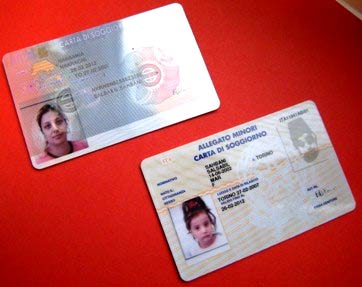
A work permit can be obtained from one of the departments of the Italian Ministry of Labor. It is issued on the basis of an employment contract concluded directly between the employer and the employee.
A work permit is issued specifically for the type of activity specified in the contract.
In other words, a work permit is tied to a position at work. If a change of employer is planned, a new work permit will have to be obtained. An important aspect is that after obtaining a permit, it must be registered with one of the local police stations.
A work permit is issued to an employee for a period specified in the contract. But it cannot exceed one year.
Brief summary
Having weighed all the positive and possible negative aspects, you can safely decide whether you need employment in the Italian Republic or not. Usually, the advantages outweigh the benefits, because this is a real prospect of earning extra money in Europe. Then you can return to your homeland or stay on the shores of the Apennine Peninsula, ensuring a normal life for yourself and a European education for your children. An undoubted “pro” of working in Italy is the opportunity to find a job for a worker of any level, the main thing is there is a desire.
Work for Russian men in Italy
It is difficult for a man without a work visa to find work in Italy. Here they don’t want to get involved with illegal immigrants; serious companies don’t hire anyone without a visa. In addition, the man must pay for housing and food himself, and the wages of illegal immigrants are very low by local standards. The best option is to work in Italy for the summer, when they are looking for personnel to service beaches, resorts, harvesting, and small contractors. It’s worth knowing that on the southern coast, wages will be two times lower than on the northern coast, but the authorities there pay less attention to foreign workers.



